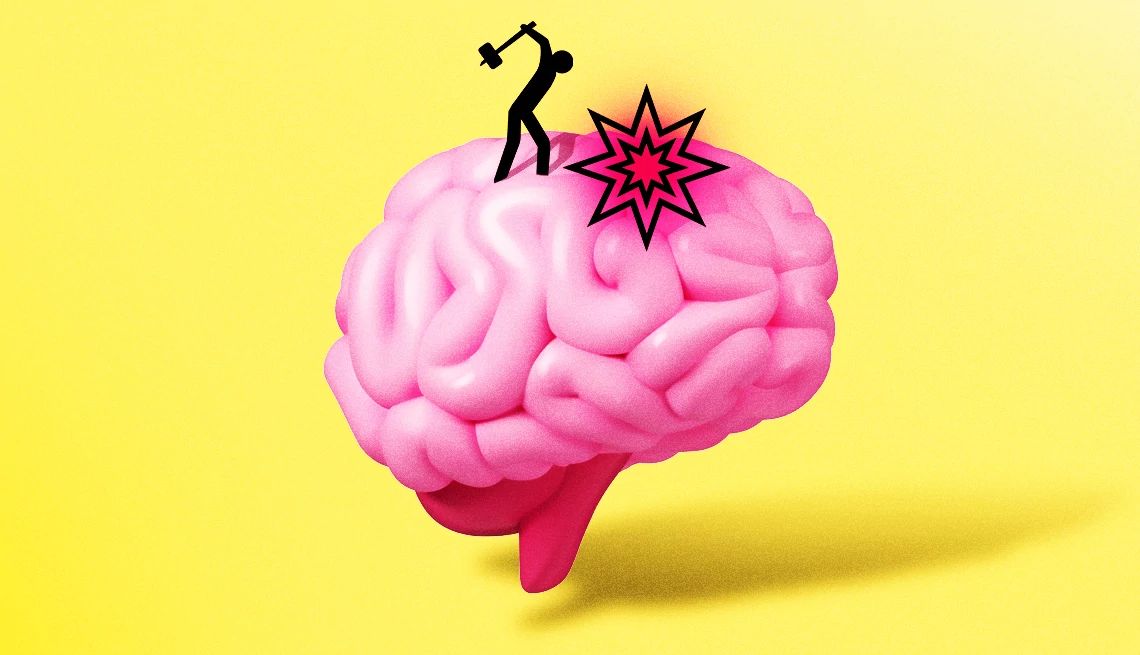
Smart guide to headache management
- Select a language for the TTS:
- UK English Female
- UK English Male
- US English Female
- US English Male
- Australian Female
- Australian Male
- Language selected: (auto detect) - EN
Play all audios:

AVOIDING COMMON TRIGGERS 7. NOSH IF YOU NEED TO A mild headache could be a sign of hunger on its own, but “peaks and valleys” in your glucose levels can also bring on other kinds of
headache, Starling says. Especially if you have a high metabolism, eating nutrient-dense snacks such as nuts, raisins or yogurt between meals can help keep your blood sugar steady, says
Susan Broner, M.D., director of the Weill Cornell Medicine Headache Program and an assistant professor of clinical neurology at Weill Cornell Medicine. 8. BEWARE THE OPEN BAR Red wine can
cause headaches in some people, while other alcoholic drinks — or, obviously, too much to drink — can have the same effect on others. If you notice that you tend to get headaches after
drinking alcohol, switching to mocktails or alternating alcoholic drinks with non-alcoholic drinks or water could help. 9. MODERATE YOUR CAFFEINE INTAKE Starling suggests thinking of
caffeine like medicine. After all, many over-the-counter headache remedies, including Anacin, contain it. Too much caffeine can cause a headache, but a single cup of coffee when you feel a
migraine or tension-type headache coming on could potentially ease your symptoms. “It’s a double-edged sword,” says Starling, who gets migraines herself. If you have a daily coffee habit,
you might also experience withdrawal headaches on the mornings you go without. These are simply remedied by having your morning cup. Or, you can prevent them by gradually cutting back. 10.
KNOW YOUR DAILY MEDS Some drugs — including those that are used to lower blood pressure — can cause headaches as a side effect. And if you take more than one daily medication, an interaction
between two or more could also cause trouble. “One piece of advice I give everybody who comes to me is, assemble all of your medications and doses,” Levin says. “Then we’ll have a look and
see if there’s something there that can be adjusted.” 11. WATCH THE WEATHER Changes in temperature or barometric pressure, especially related to storms, can kick off mild or severe
headaches, research shows. Knowing the forecast can help you take steps to lower your risk. When Starling hears there’s a big change coming, she says, “I start taking better care of myself.
I make sure I hydrate, I eat really consistently and get good sleep.” 12. KEEP A DIARY Documenting your headaches, including when they occur, what they feel like and what led up to them, can
help you — or your doctor — identify triggers to avoid. Did you eat something unusual? Where on your head does it hurt? What, if anything, helps relieve the pain? Keeping track of such
details can reveal patterns that point to the source of the problem. Grinding your teeth can cause headache pain. Talk to your dentist about getting a custom-made mouth guard if you grind
your teeth at night. Getty Images HANDLING UNDERLYING CONDITIONS 13. TREAT SLEEP APNEA If you get headaches in the morning and have symptoms of sleep apnea, such as loud snoring or daytime
drowsiness, ask your primary care physician whether you should get tested. Your doc may refer you to a specialist to be evaluated — and prescribed a CPAP machine or other treatment, if
necessary. Although neurologists are still not sure of the mechanism, they know that treating sleep apnea may reduce headaches, according to the _Journal of Headache and Pain_. 14. ADDRESS
NECK ISSUES Neck pain caused by a pinched nerve, a slipped disk, arthritis or other common conditions can lead to cervicogenic headaches — throbbing, often one-sided head pain. The good news
is that exercises to stretch and strengthen the neck may help. “Everybody’s neck is different, so you might want to see a specialist to learn the exercise you need,” says Hsinlin Thomas
Cheng, M.D., director of the headache and neuropathic pain unit at Massachusetts General Hospital and an assistant professor of neurology at Harvard Medical School. Changes in daily posture
can also help reduce these headaches, Levin adds. If you ride a bike, for example, he recommends extending the stem to avoid being too hunched over. 15. CUSHION TOOTH GRINDING “If your brain
clenches your jaw all night long when you sleep, you’re going to wake up in the morning with a lot of neck issues,” says Cheng — and that means a potential for cervicogenic headaches.
Your dentist can tell you whether your teeth show signs of nocturnal clenching or grinding, also called bruxism. If they do, a custom-made mouth guard to wear at night might reduce your
pain. 16. KEEP YOUR SINUSES CLEAR Painful pounding around the eyes, especially when accompanied by a stuffy nose or a cough, could indicate sinus inflammation. Treating this inflammation
with decongestants might eliminate your headache. It isn’t always easy to distinguish between sinus headache and migraine, though, so if over-the-counter decongestants don’t help, talk to
your primary care doc about next steps — whether that means an antibiotic for sinus infection or a referral to a headache specialist.
